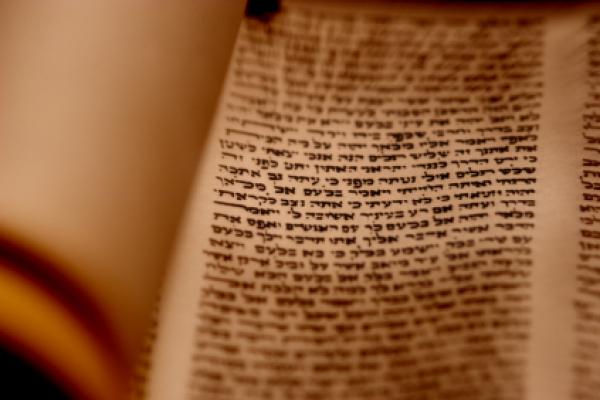Tisha B'Av in United States
Quick Facts
Tisha B’Av is on the ninth day of the month of Av in the Jewish calendar.Local names
| Name | Language |
|---|---|
| Tisha B'Av | English |
| Tisha B'Av | Spanish |
Tisha B'Av 2012
Saturday, July 28, 2012Tisha B'Av 2013
Tuesday, July 16, 2013Note: Jewish holidays begin at sundown the day before the date specified for the holiday.
List of dates for other years
Many Jewish people in the United States observe Tisha B’Av, which is the ninth day of the month of Av in the Jewish calendar. It is a day of mourning to remember various events such as the destruction of the First Temple and Second Temple in Jerusalem.
Tisha B’Av is a sad day that observes other major disasters and tragedies that affected Jewish people throughout history.

Torah study is forbidden on Tisha B'Av except for sad texts such as the Book of Lamentations. ©iStockphoto.com/Greg McCracken
What do people do?
Many Jewish people in the United States observe various restrictions during Tisha B’Av. These restrictions may include:
- Fasting.
- Avoiding washing, bathing, shaving or wearing cosmetics.
- Not wearing leather shoes.
- Avoiding certain types of work.
- Abstaining from sexual activities.
Many traditional mourning practices are observed, such as refraining from smiling and laughing. Those who observe Tisha B’Av are allowed to study only certain portions of the Torah and Talmud on Tisha B'Av. The book of Lamentations is read and mourning prayers are recited in the synagogue. The ark (cabinet where the Torah is kept) is draped in black.
Some universities or learning centers give those who observe Tisha B’Av the chance to sit exams at other dates, on the proviso that certain requirements are met. Some Jewish centers offer a program for observing Tisha B’Av. People who are sick are exempted from fasting on the day.
Public life
Tisha B’Av is not a federal public holiday in the United States. However, some Jewish organizations may be closed or have restricted opening hours.
Background
Tisha B’Av, also known as the Jewish Fast of Av, is a period of fasting, lamentation and prayer to remember the destruction of the First and Second Temples of Jerusalem. The Jewish people still continued the fast day even after they rebuilt the First Temple after the Babylonians destroyed it in 586 BCE. The Romans destroyed the Second Temple by burning it in 70 CE and this marked the start of a long exile period for Jewish people. These are two of five sad events or calamities that occurred on the ninth day of the month of Av. The other three were when:
- Ten of the 12 scouts sent by Moses to Canaan gave negative reports of the area, leading to the Israelites’ despair.
- The Romans captured the fortress city of Beitar, the last stronghold of the leaders of the Bar Kochba revolt, and thousands of Jewish people, including Bar Kokhba (or Kochba), were massacred in 135 CE.
- The city of Jerusalem was destroyed in 136 CE.
Tisha B’Av is a sad day that observes other major disasters and tragedies that Jewish people experienced throughout history, including the expulsion of the Jewish people from England in 1290 and from Spain in 1492, as well as the mass deportation of Jewish people from the Warsaw Ghetto during World War II.
Tisha B’Av begins at sunset on the previous day and lasts for more than 24 hours. It is the culmination of a three-week period of mourning. Weddings and other parties are generally not permitted and people refrain from cutting their hair during this period. It is customary to refrain from activities such as eating meat or drinking wine (except on the Shabbat) from the first to the ninth day of Av.


No comments:
Post a Comment